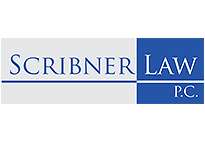BY: PHILLIP E. MILLER
(Please understand that the answers to these questions are general in nature and may not cover every individual situation.)
Last quarter my news article was a primer on the difference between wills and trusts. Hopefully you are now prepared to go to your attorney and say, “I want a…”. What I did not do is go into much depth on how your trust will work. How does it skip the probate process? Do you lose control of your property? In this article you will get the rest of the story.
If you have now decided to do a trust you will be full of questions. The first is maybe “how does it work?” or “how does it skip probate?” The answer is that a trust pre-plans how to deal with your estate and actually sets that plan in motion while you are alive. The actual trust will describe who will get your property or how it will be divided. The trustee of the trust will be given the power to act on the instructions given in your trust. For instance, if you want your oldest son Jed to get the family property, Red Acre, in the trust you will give this instruction and the trustee will deed Red Acre, to Jed upon your passing. Your trustee stands in your place to effectuate your wishes.
Now, Once you have your instructions for the trust, you must deed your property into it. This is how the trust gets control of the property and can then make decisions after you have passed. Not deeding the property (or titling property in the trusts name) is one of the biggest mistakes that people make when doing their own trust and why a professional is highly recommended. If the trust owns the property it will survive you as an individual, there is no need to do a probate at your death.
If you are deeding the property to the trust, won’t you lose control? The answer is usually not. If you are doing a standard revocable trust and appoint yourself to be the first trustee, you will be able to sell or distribute the property just as you would if the trust were not in place. You can move the property in and out of the trust as you please, and you may receive the income from income producing property. The only difference is that you will be acting in the trusts name and not your own.
Hopefully, you now have a better understanding between the differences of wills and trusts, and how a trust works. When you sit down with your attorney you will be able to get to the details of your specific trust and not waste your valuable time. In a previous news article I did a primer to eviction. Now that you have your eviction, how do you collect on your judgment? Coming soon.


Sorry, the comment form is closed at this time.